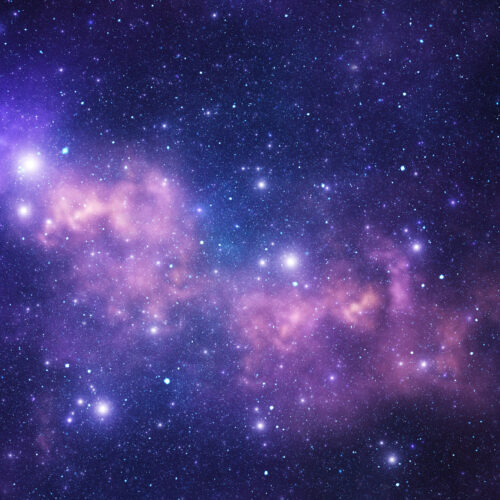The Mystery of Dark Energy Just Got Even Deeper
New data suggests the unknown, unobservable force responsible for the universe's expansion may be weakening.
Last year, we reported on an exciting hint of new physics in the first data analysis results from the Dark Energy Spectroscopic Instrument (DESI)—namely that the dark energy, rather than being constant, might vary over time. Granted, those hints were still below the necessary threshold to claim discovery and hence fell under the rubric of "huge, if true."
But now we have more data from DESI, combined with other datasets, and those hints have gotten significantly stronger—so much so that Mustapha Ishak-Boushaki of the University of Texas at Dallas, who co-chairs one of the DESI working groups, said that "we are getting to the point of no return" for confirming dynamical dark energy. Ishak-Boushaki and several other DESI team members presented their results at the American Physical Society's Global Physics Summit today in Anaheim, California. Several relevant papers have also been posted to the physics arXiv.
Einstein’s cosmological constant (lambda) implied the existence of a repulsive form of gravity. (For a more in-depth discussion of the history of the cosmological constant and its significance for dark energy, see our 2024 story.) Quantum physics holds that even the emptiest vacuum is teeming with energy in the form of “virtual” particles that wink in and out of existence, flying apart and coming together in an intricate quantum dance. This roiling sea of virtual particles could give rise to dark energy, giving the Universe a little extra push so that it can continue accelerating. The problem is that the quantum vacuum contains too much energy: roughly 10120 times too much.


© KPNO/NOIRLab/NSF/AURA/B. Tafreshi



Physicists including Robert H. Dickle and Fred Hoyle have argued that we are living in a universe that is perfectly fine-tuned for life. Following the anthropic principle, they claimed that the only reason fundamental physical constants have the values we measure is because we wouldn’t exist if those values were any different. There would simply have been no one to measure them.
But now a team of British and Swiss astrophysicists have put that idea to test. “The short answer is no, we are not in the most likely of the universes,” said Daniele Sorini, an astrophysicist at Durham University. “And we are not in the most life-friendly universe, either.” Sorini led a study aimed at establishing how different amounts of the dark energy present in a universe would affect its ability to produce stars. Stars, he assumed, are a necessary condition for intelligent life to appear.
But worry not. While our Universe may not be the best for life, the team says it’s still pretty OK-ish.


© Sololos